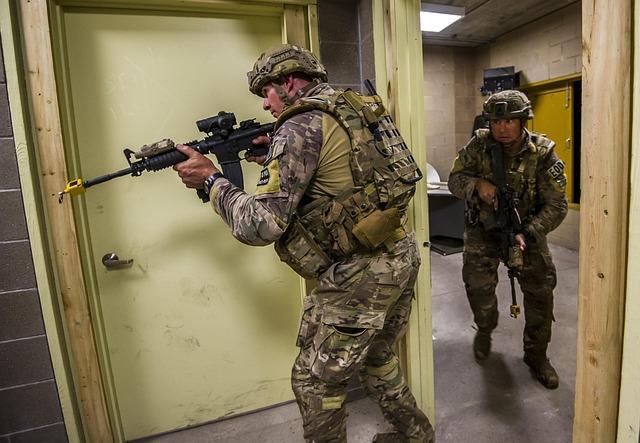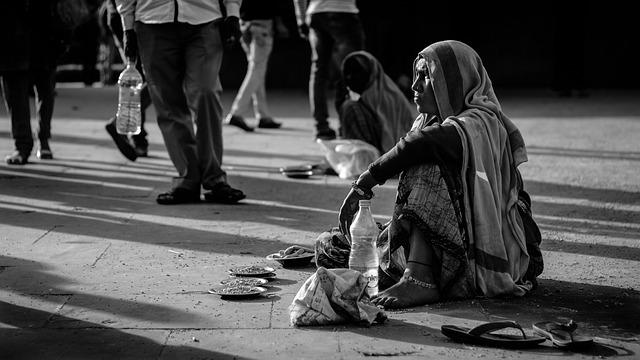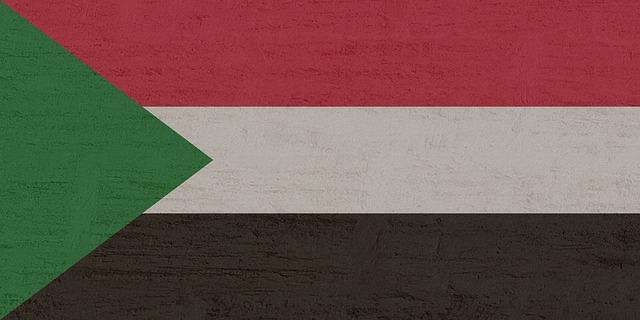In a chilling escalation of violence in Sudan, the paramilitary Rapid Support Forces (RSF) have launched a brutal three-day assault on southern villages, resulting in the deaths of dozens of civilians. This wave of attacks underscores the ongoing instability that has plagued the region amid a protracted power struggle and humanitarian crisis.As the RSF continues to exert its influence amid the chaotic political landscape, the toll on innocent lives is mounting, prompting urgent calls for international attention and intervention. This article delves into the details of the recent violence, the responses from local communities, and the broader implications for peace and security in Sudan.
Daybreak Africa Reports on RSF Assault in Sudan
The recent violence in Sudan, especially involving the Rapid Support Forces (RSF), has drawn international attention as dozens of civilians have tragically lost their lives over a span of just three days.Local reports indicate that the RSF launched a series of coordinated assaults on villages in the southern region, leading to significant casualties and widespread devastation. Survivors recount harrowing tales of their experiences, emphasizing the brutality and indiscriminate nature of the attacks. the RSF has been accused of using heavy weapons to target residential areas, resulting in the displacement of thousands and creating a dire humanitarian crisis.
Human rights organizations have condemned the RSF’s actions, calling for urgent international intervention to protect the civilian population.The ongoing conflict complicates humanitarian efforts, as access to affected areas remains restricted.Key issues include:
- Increased civilian casualties due to targeted violence.
- Displacement of families seeking refuge from the attacks.
- Challenges in delivering humanitarian aid amidst the chaos.
The need for accountability and a cessation of hostilities has become paramount, as the international community watches closely, urging Sudanese authorities to take action in protecting vulnerable populations.

The Humanitarian Crisis: Impact on Local Communities
Local communities in southern Sudan have been devastated by the recent three-day assault by the Rapid Support Forces (RSF).As violence escalates, the fabric of daily life is unraveling, leading to widespread insecurity and humanitarian challenges. Residents have been forced to flee their homes, often leaving behind their livelihoods and possessions.The immediate impact includes:
- Displacement: Thousands are now living as internally displaced persons (IDPs), seeking shelter in overcrowded camps where resources are scarce.
- Food insecurity: Agricultural activities have been disrupted, exacerbating food shortages and increasing reliance on humanitarian aid.
- Health Crisis: Access to essential medical care is severely limited, with health facilities either damaged or overwhelmed.
The socio-economic implications of the violence extend beyond immediate physical harm. Communities are witnessing a breakdown of social structures, leading to heightened tensions among different groups. Economic activities have stuttered, leaving many without employment opportunities and pushing families into poverty. The long-term consequences could be dire:
- Cultural Erosion: Customary practices and community ties are at risk as families are scattered and displaced.
- Youth Vulnerability: Young people face a higher likelihood of recruitment into armed groups, perpetuating a cycle of violence.
- Increased Gender-Based Violence: The chaos of conflict often leads to a surge in violence against women and girls, making them more vulnerable in already precarious conditions.

International Response: Calls for Condemnation and Action
The recent onslaught in southern Sudan has ignited strong reactions on the international stage, with numerous governments and organizations calling for immediate actions against the actions of the Rapid Support Forces (RSF). Many world leaders have taken to social media platforms and official statements to express their outrage and demand accountability. Key actions being advocated include:
- Condemnation of violence against civilians.
- Imposition of sanctions on the RSF leadership.
- Mobilization of humanitarian aid for the affected regions.
Furthermore, human rights organizations have urged the international community to prioritize a coordinated response. They stress the necessity for investigations into the atrocities, proposing that the United Nations consider deploying peacekeeping forces to help stabilize the situation. Notable calls for action include:
- implementation of a comprehensive arms embargo against Sudan.
- Support for local and international organizations working to assist victims.
- Advocating for a political dialog to achieve lasting peace in the region.
Investigating the Role of the RSF in Regional Instability
The recent assaults by the Rapid Support Forces (RSF) in southern Sudan illustrate a troubling pattern of violence that exacerbates regional instability. Over a span of just three days, the RSF has been linked to the deaths of dozens in several villages, prompting outrage and a call for immediate intervention.The RSF,a paramilitary group originally formed to combat insurgents in the Darfur conflict,has evolved into a powerful entity that operates with increasing autonomy. Its targets have included not only rebel factions but also civilian populations, raising questions about the group’s broader intentions and the implications for humanitarian efforts in the region.
the systematic approach taken by the RSF during these attacks reflects a calculated strategy aimed at consolidating control over key territories. Observers point to several factors that enable these violent tactics:
- Weak Governance: The Sudanese government’s inability to maintain order in areas plagued by conflict creates a power vacuum.
- Local Rivalries: Pre-existing ethnic tensions and local grievances are exploited by the RSF to justify their aggressive maneuvers.
- Armed Alliances: The RSF frequently collaborates with and manipulates local militias to bolster its operational capacity.
| Key Incidents | Date | Casualties |
|---|---|---|
| Southern Village Assault | October 10-12, 2023 | Dozens |
| Human Rights Violations Reported | October 11, 2023 | Multiple |
| International Outcry | October 12, 2023 | N/A |

Recommendations for Peacebuilding and Support Mechanisms
As the conflict in Sudan escalates, it becomes increasingly urgent to implement measures that foster stability and reconciliation in affected regions. Engagement with local communities is essential to understand their needs and perspectives. Peacebuilding initiatives should focus on empowering local leaders and organizations, enabling them to take charge of the healing process. This community-driven approach not only enhances ownership but also ensures that interventions are culturally relevant and contextually appropriate. additionally, dialogue forums can facilitate interaction between conflicting groups, promoting mutual understanding and paving the way for long-term peace.
International support mechanisms play a vital role in bolstering these local efforts. Humanitarian aid is crucial, but it must be coupled with strategies aimed at resilience and recovery. Establishing transitional justice mechanisms can help address grievances and foster accountability, which are critical for lasting peace.Furthermore, the international community should consider financial investments in development projects that create jobs and improve living standards, thereby tackling some of the root causes of conflict.Collaborative workshops and training programs aimed at conflict resolution and negotiation skills can also equip individuals and community leaders with the tools necessary to navigate future disputes constructively.

The Path Forward: Restoring security and Trust in Southern Sudan
The ongoing violence in southern Sudan has exacerbated the already fragile state of security and trust among communities struggling to rebuild after years of conflict. Considering the recent three-day assault by the Rapid support Forces (RSF) that left dozens dead, it is indeed imperative to focus on comprehensive strategies aimed at restoring stability. Key measures for moving forward include:
- Strengthening Local Governance: Empowering local leadership structures to engage communities in dialogue and conflict resolution.
- Rebuilding Trust: Promoting reconciliation efforts across ethnic lines by facilitating peace forums and community gatherings.
- International Support: Ensuring that humanitarian assistance is delivered transparently, allowing for greater accountability among aid organizations.
To effectively combat the resurgence of violence, it is essential to prioritize the establishment of security measures that are both community-driven and backed by international commitment. Initiatives such as joint peacekeeping missions and the deployment of monitoring teams can play a vital role in re-establishing law and order. A collaborative approach involving all stakeholders is crucial, and the following table highlights potential areas of focus for international partners:
| Focus Area | Proposed Action |
|---|---|
| Security Reinforcement | Deploy peacekeeping forces to hotspot areas. |
| Community Engagement | Facilitate workshops to educate on conflict resolution. |
| Humanitarian Aid | Ensure equitable distribution of resources to affected populations. |
by addressing these focus areas with urgency and solidarity,Southern Sudan can embark on a path toward lasting peace and security,ultimately fostering a climate of trust essential for the region’s recovery.
The Way Forward
the recent escalation of violence in southern Sudan, marked by the Rapid Support Forces’ brutal assault on local villages, highlights the ongoing humanitarian crisis gripping the region. With reports indicating dozens of lives lost and countless more affected, the situation calls for urgent international attention and action. As communities grapple with the aftermath of this tragic episode, the need for a comprehensive and lasting peace solution becomes ever more critical. The resilience of the affected populations and the tireless efforts of humanitarian organizations will be essential in addressing the immediate needs and fostering a path toward stability and recovery in sudan. As this story continues to unfold,it underscores the importance of global awareness and intervention in the face of escalating violence and humanitarian challenges.







